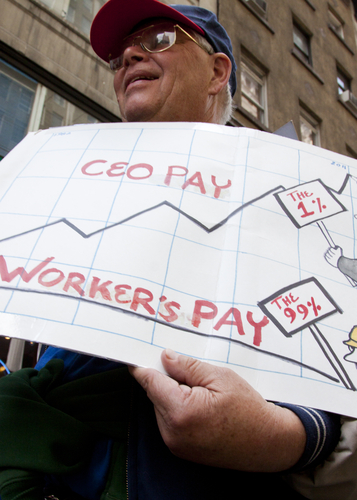 Many people argue vehemently about who builds businesses. Conservatives argue that CEOs built them from the ground up, and should be entitled to ample pay which is hundreds to thousands of percent more than that of most employees. Progressives argue that the pay of CEOs is severely inflated.
Many people argue vehemently about who builds businesses. Conservatives argue that CEOs built them from the ground up, and should be entitled to ample pay which is hundreds to thousands of percent more than that of most employees. Progressives argue that the pay of CEOs is severely inflated.
In this article we will explore who and what is required to build a business.
The requirements of building a business are heavily dependent on the size and type of the business. A business can be built and operated by one person, however, those businesses are always severely limited because one person is not capable of doing much work.
Small Businesses
In the country I grew up in (Jamaica), small, one person businesses are very common. It is a beautiful example of people providing local services, while at the same time making an (often) honest living. There’s a low barrier of entry given the best merchant accounts for small businesses are often easily obtainable – and in a service-based world, anyone with any ambition can always find a niche need that they can fill.
It has the potential to put food on the table, but, the amount of time and effort required to keep these businesses afloat compared to their productivity is so great that these businesses are always small.
One exception to this rule (or somewhat of an exception) is software vendors.
A person can write one program and sell it to millions of people by themselves, however, they cannot provide support by themselves because millions of people are going to need their help with it. So it boils back down to the same rule I mentioned above. It has to be small unless no support is to be provided.
Large Businesses
Large organizations, whether they manufacture thousands of products, or serve thousands of customers in a store chain, require employees to work assembly lines, maintain equipment, cash customers’ purchases, clean buildings, assist customers with finding items, delivering items, stock items, and much more.
CEOs are necessary to decide organizations’ policies and lead them in the right direction, which is also very important. Many people’s jobs, including that of CEOs cause tremendous stress.
A CEO could lose their job if they make unwise decisions and plunge the organization they work for into the ground. If an accountant makes a mistake, they could cause overpayment of loans (even by adding an extra zero to a number), a security guard could let a criminal escape with millions of dollars, etc.
The accountant and security guard would have to pay for these mistakes. CEOs can actually pay nothing if they make an unwise decision that costs a business money.
Anyway, my point is that everyone has to pitch in to facilitate the construction of a large business, even people that are not directly employed by the businesses, such as employees of external building contractor firms which literally build the physical part of the business.
Taxpayers’ money built and maintains the roads and other infrastructure required for businesses to operate. Taxpayers also pay for the police force, the fire brigade, and all the other government services used by businesses.
Despite the stress of a CEO, average employees do most of the work, including almost all of the leg work. CEOs have to work hard to get their businesses off the ground, but remember the employees that have to go to work doing everything else for them for 8 hours per day, every day of the work week.
It could not be done without them.
CEO Pay scale photo courtesy of Glynnis Jones / Shutterstock.com

